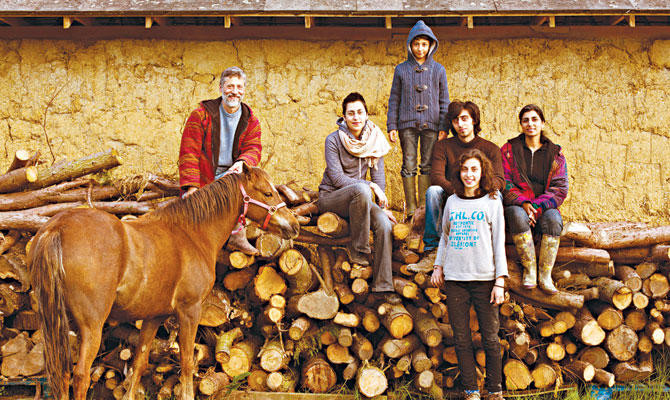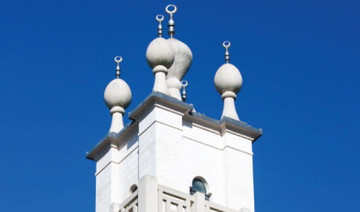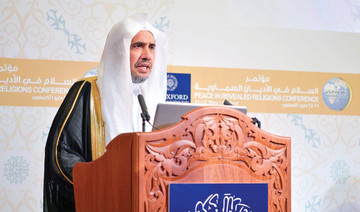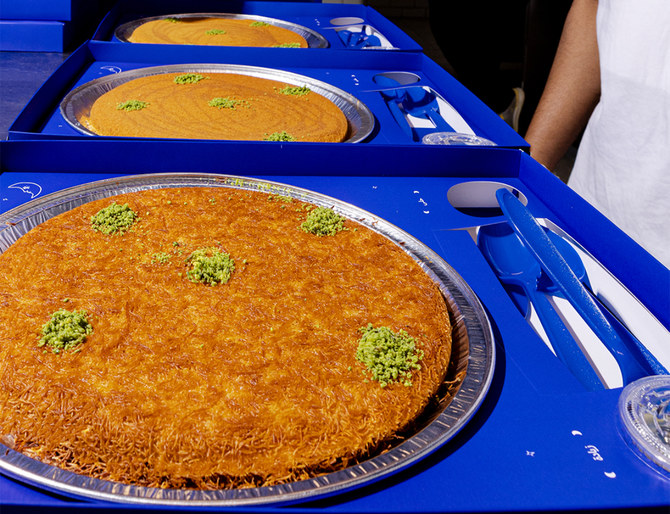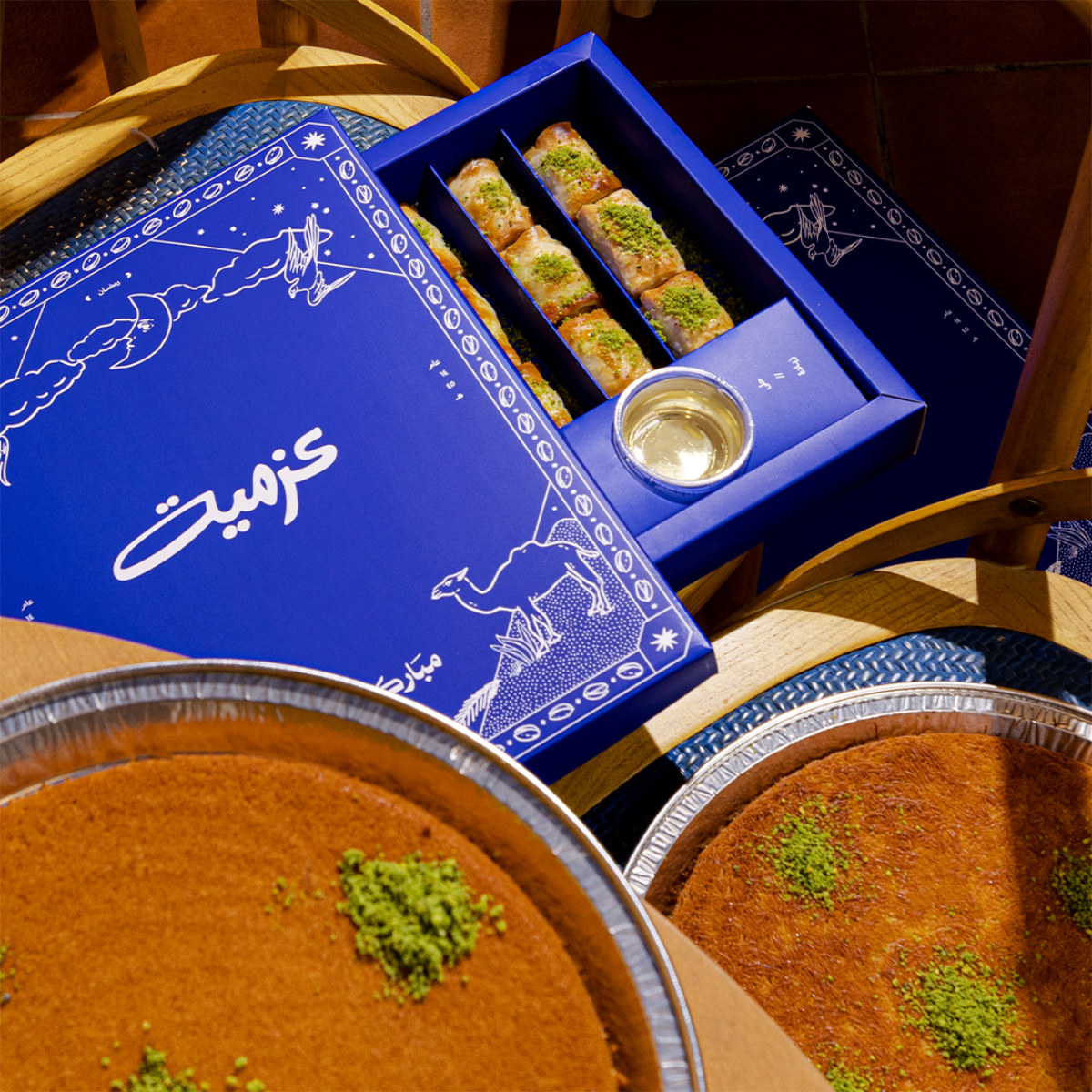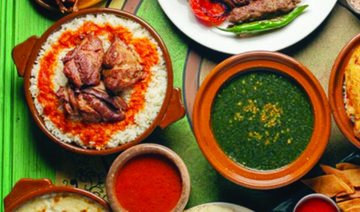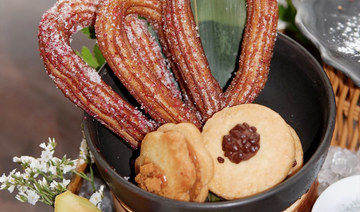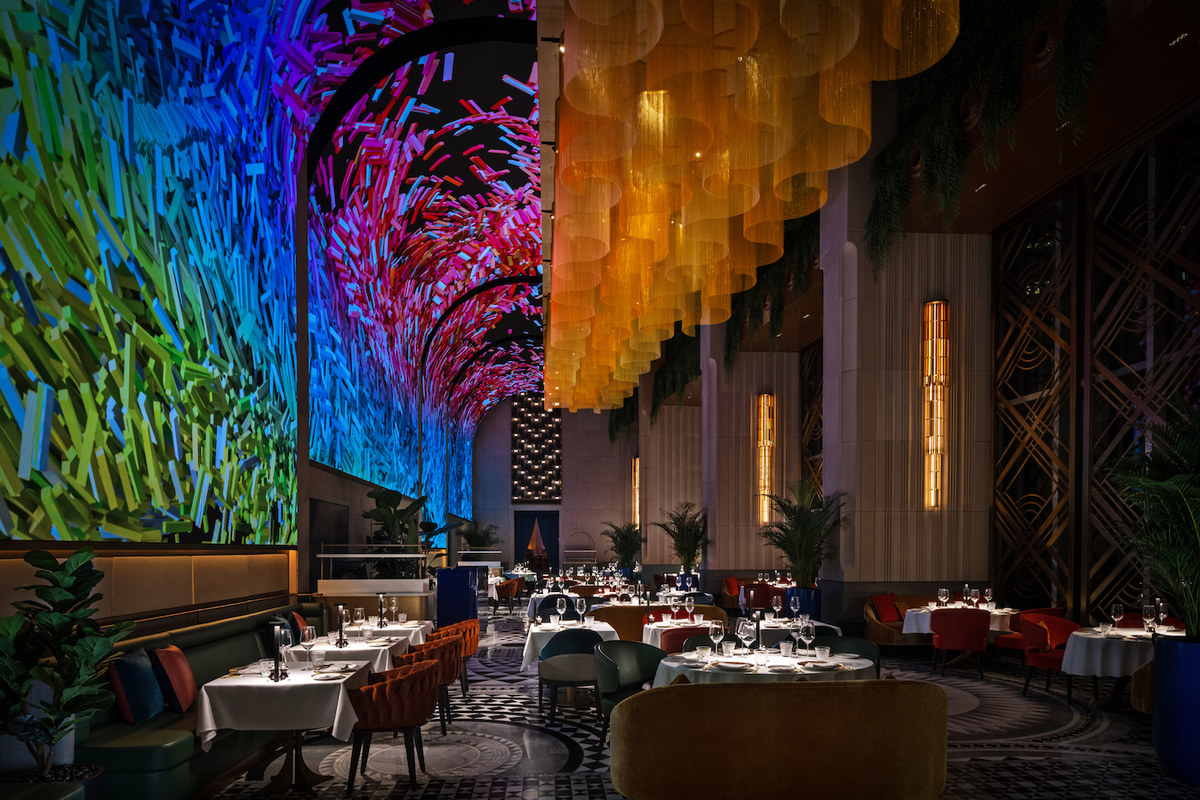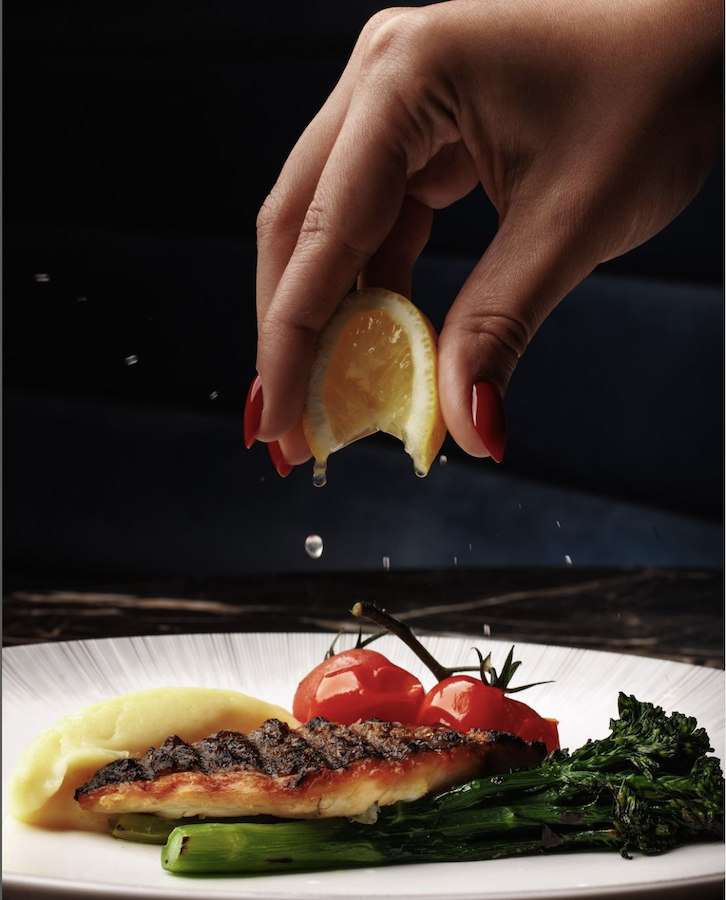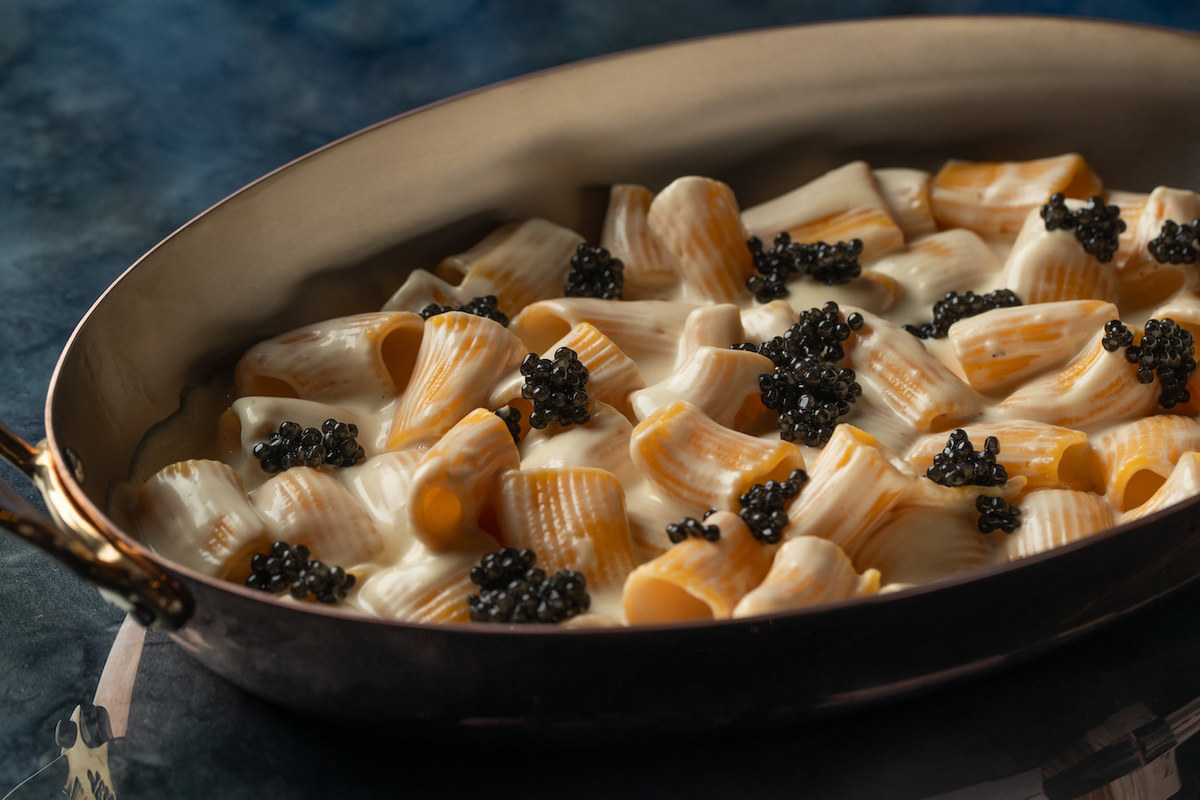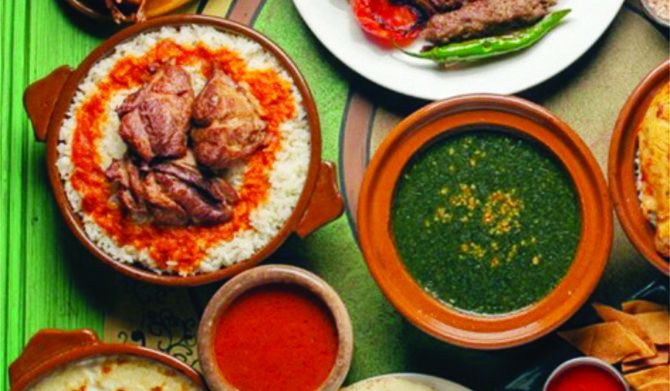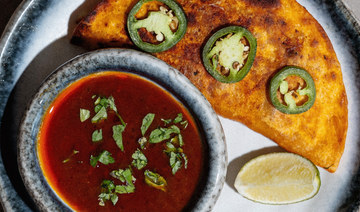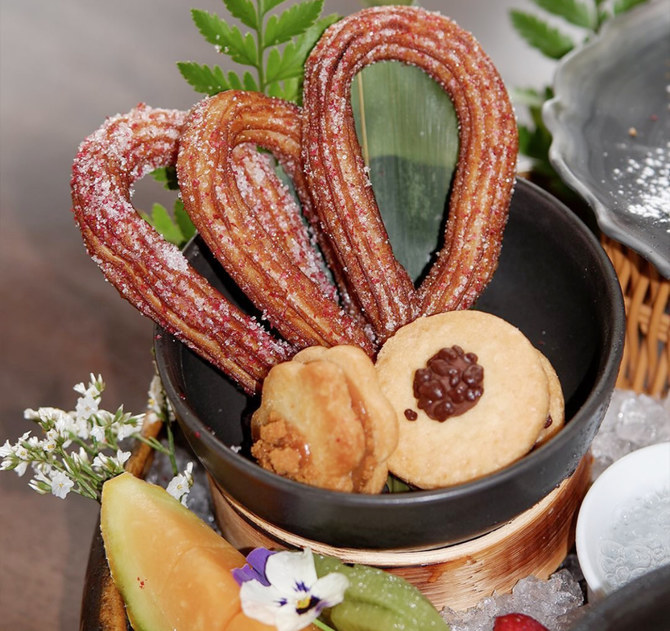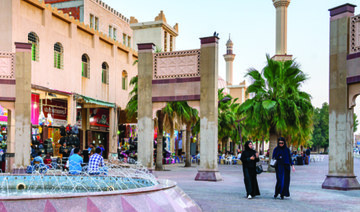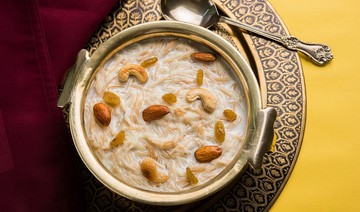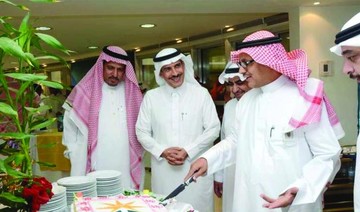OXFORD: The first fat bulb of garlic has come through and Ruby Radwan holds it aloft proudly, pleased that her vegetable garden on England’s only organic halal farm is ripening for another season. Inside the greenhouse, leafy plants overlapping in the warm soil could be cucumber, melon or squash. “I’m still learning what everything is,” she admitted.
Neither Ruby, 53, a Briton of Pakistani origin who grew up in a North London, nor her husband, Lutfi Radwan, a former geography lecturer at the University of Oxford, has a farming background, but that didn’t stop the couple from surrendering city life for an empty plot of land in rural Oxfordshire, where they have established a sustainable environment based on holistic halal principles. “We were just brave enough to close our eyes and jump,” Lutfi said, comparing the move to a midlife crisis — “but a good one.”
That was 16 years ago this September and Willowbrook Farm has since gained celebrity status among Muslims in the UK, where the halal market is dominated by mass-produced meat to feed mounting demand.
This kind of “factory-farmed rubbish,” which accounts for the overwhelming majority of chicken, lamb and beef in Britain’s butchers, is “clearly not halal,” said Lutfi, who takes a broader view.
“Halal is an all-encompassing term, it isn’t just ritualistic slaughter,” he told Arab News.
Sifting through a mound of soil that needed to be moved before the end of the day, Lutfi expanded on the religious roots of his environmentalism. “The way of life we all have is increasingly haram,” he said.
For the 55-year-old, much of modern life is at odds with the Islamic concept of khilafah, or responsible leadership. Lutfi cited the overuse of plastics and pesticides as just a few examples of devastating human impact on the planet.
There are just a handful of small-scale enterprises populating this niche market. Lutfi reckons organic halal providers produce no more than 500 chickens a week, around 150 of which come from Willowbrook Farm — not nearly enough to meet mounting demand.
According to a recent report by Grand View Research, the global halal food market is expected to reach $739.59 billion by 2025, up from $436.8 billion in 2016.
This week at Abraham Organics, a UK farm which offers meat that is “halal, tayib, ethical,” online shoppers found that the organic lamb was sold out. The venture began selling to a handful of local customers, but now has orders “from Inverness to Skegness, Yorkshire to Buckinghamshire.”
Building Willowbrook from scratch, including the traditional-style English farmhouse, Lutfi and Ruby have effected a “natural balance,” where humans and animals live in tune with nature, from the solar panels and log burner that supply their energy to the well water irrigating the fields.
The aim is to create a system that produces wholesome halal food “by looking after the animals around us and providing a space for nature to flourish.”
Wool from their own sheep insulates the farmhouse walls, which were built with clay dredged from the garden pond and then mixed with sand and straw, using a technique dating back to medieval times. Everyone chipped in, even the youngest of their five children, Ali, who was “chief tool cleaner.”
Now 14, Ali has never had a McDonald’s burger and, although curious to try one, he is happy eating meat ethically reared on his family farm.
High street food outlets are still steered by cost, however, and the few that have ordered from Willowbrook Farm, where a whole chicken costs £13.44 ($17.60), compared with an average £3.50, have invariably gone back to standard suppliers.
“When people say we’re expensive, it’s only because there is an artificial subsidy being given to factory farming … the real cost is being paid by future generations,” said Lutfi.
The same goes for customers, Ruby said. The moral argument “is easily won,” but once out shopping people slide back to mass-produced meat. “If it’s cheap then someone is paying the cost somewhere,” she said.
The couple try to educate customers about the ethics that underpin their farming methods. “They need to know it’s a live animal that will be killed, plucked, portioned and packaged,” said Lutfi.
On Sunday tours of the farm, he likes to steps back into his previous role as a geography professor and talk visitors through the different ecosystems and habitats that thrive across the 45-hectare estate.
Having worked on a date plantation in Saudi Arabia and disaster relief programs in Mauritus and Senegal, Lutfi brings a global perspective to bear on the small corner of southern England under his stewardship.
“It’s a manageable size for a family farm,” he said, adding that the children have all played their part over the years, packing eggs or feeding the goats, guinea fowl and turkeys they keep as pets.
At Eid, they sell traditional whole lamb, known as qurbani, for about £240, though “we make it clear we have a small number and it’s ‘first come, first served’.”
Chicken makes up a large portion of their sales, but with poultry accounting for almost half the meat consumed in the UK — British people eat an estimated 2.2 million chickens per day — the couple have begun curtailing growth to stay true to their farming principles.
At present, they produce around 150 birds a week, which makes up a significant percentage of the total free-range halal market — amounting to about 500 chickens a week, Lutfi estimated. “We’re a drop in the ocean; everything else is factory farmed,” he said.
Controversy surrounding the animal welfare and human health implications of intensive methods has reached a height in the UK, which has seen a significant rise in “mega-farms,” where thousands of animals are packed into crowded spaces, pumped full of antibiotics and denied access to sunlight.
Halal farmers are frequently targeted by UK animal rights groups, which claim that this method of killing livestock is “inhumane” because a small number of practitioners object to stunning the animals first. Under Islamic law, an animal’s throat must be cut with a sharp instrument and its blood left to drain. It also ordains that animals must not be mistreated or caused pain during their lifetime.
According to the Food Standards Agency, about 88 percent of halal meat comes from animals that were stunned before slaughter, with other estimates suggesting the number is higher.
A 2010 study by industry body Eblex said that England’s Muslim community, which makes up just 5 percent of the population, accounts for 20 percent of lamb consumption — and halal farmers, supermarkets and restaurant retailers are keen to tap into the growing market.
“The Muslim community in England is late to the party, which is understandable because the first generations just wanted to establish themselves,” Lutfi said.
Now, Muslims are more engaged with the broader social concerns affecting British society, including ethical farming. “An awakening is underway and we’re at the vanguard,” he said.
Interest is apparent from the amount of people, Muslims and non-Muslims, who attend weekly open days, when visitors are invited to explore the farm and enjoy its facilities, which include a camp site, two tree-houses and an animal petting enclosure. There is also an annual arts and music festival, the fourth edition of which runs from July 28-29.
These events are almost always oversubscribed. “I came here to get away from city life and the community followed me,” Lutfi said. “It shows there is a need to break out of the urban setting and get back to nature.”
Living in this rustic idyll, the family rarely go on holiday and only recently bought a television. “Having all this space is a real privilege, a gift from God,” Ruby said.
No traffic can be heard out here, only the occasional whir of small aircraft dipping over the hills from the privately owned Kidlington Airport nearby. Looking left, the white blocks of John Radcliffe Hospital in the distance indicate the outskirts of Oxford, home to England’s oldest university.
Recently, the family has been finding new ways to lessen their impact on the environment. After watching the documentary “Plastic Ocean,” Ruby swapped her disposable bin bags for leftover chicken feed bags, and she plans to buy wooden toothbrushes in future.
“We can’t do much about the big things,” she said, “but we can make a small impact on our immediate surroundings.”


